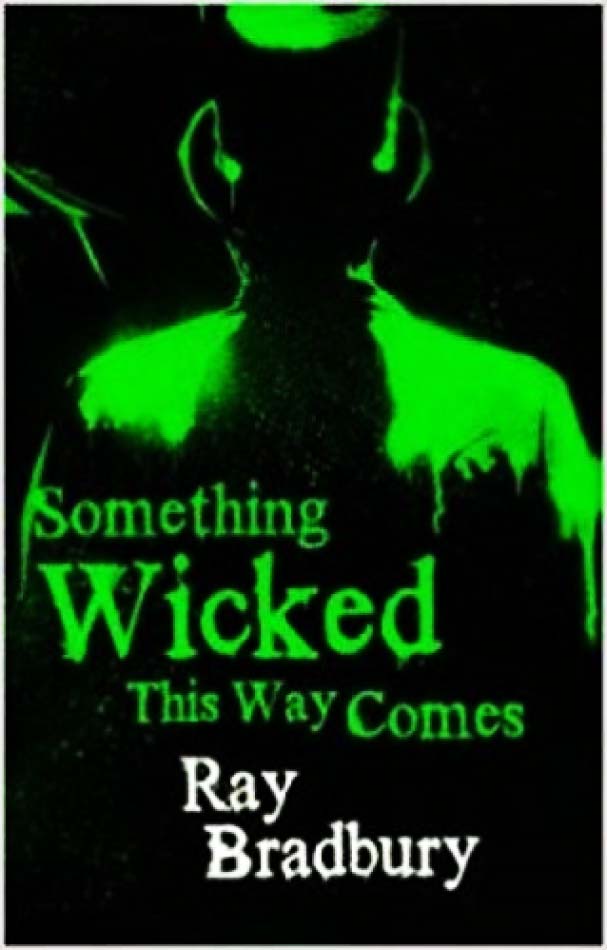13 Diverting Books for Dreary Days
Tags
- thirteen (4)
- stories (3)
- book lists (2)
- circus (2)
- folklore (1)
- ghost stories (1)
- history (1)
- storytime (1)
- word lists (1)
Archives
- November 2025 (1)
- September 2025 (1)
- August 2025 (1)
- July 2025 (1)
- February 2025 (2)
- January 2025 (1)
- November 2024 (1)
- October 2024 (4)
- September 2024 (1)
- August 2023 (1)
I suspect that I am not alone in feeling that the best way to spend a dank February day is curled up under a cosy blanket, clutching a hot mug of tea in one hand & a suitably distracting tome in the other. So here are some of my favoured titles which may assist you in escaping the dreariness of the season:
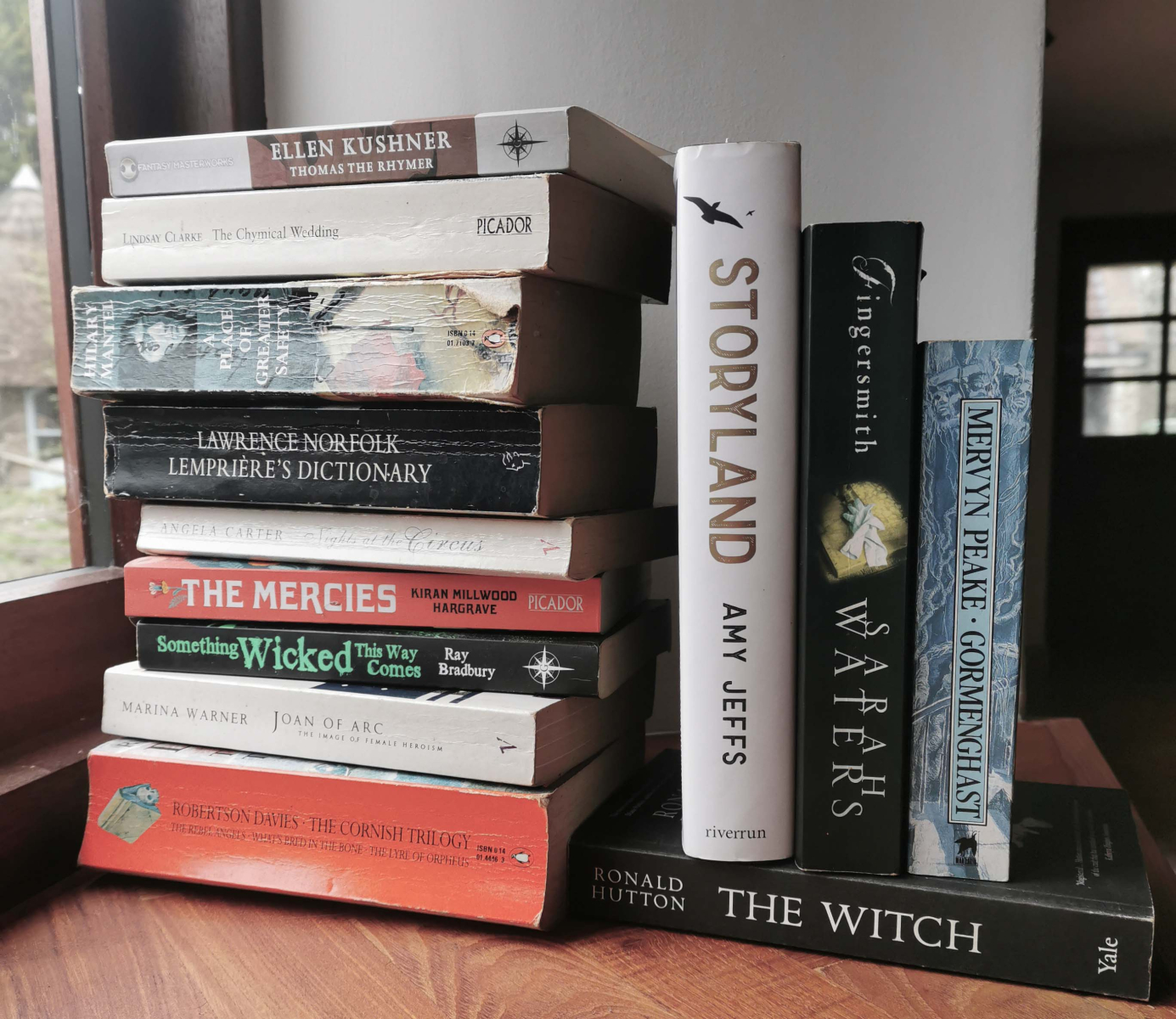
Thomas the Rhymer by Ellen Kushner
I discovered this lurking in a reading list sent by Jason Lehman in support of his Morbid Anatomy class on the history of Faerie. (If you haven't checked out Morbid Anatomy's selection of online classes, hie to their site immediately!) It is a wonderful retelling of the story of Sir Thomas de Ercildoun, a Scottish laird known for both poetry & prophecy. In a traditional tale dating back to the 1400s, he is carried off by the Queen of Elphame & returns with the gift of prophecy combined with the unfortunate inability to tell a lie. This is a book stuffed full of memorable imagery, although the fae here are in no way related to Disney's Tinkerbelle (& all the better for that!) - Thomas's journey to Faerieland in particular includes a scene which is etched upon my memory & which will doubtless have an echo somewhere in the Bizarrium Tales soon. I would share...but that would ruin the surprise.

What might seem all quaint, all harps, houppelandes, elf mounds and aristocracy, takes on a very human immediacy in Kushner’s skilled treatment…Richly imagined scenes if Faerie, elegant and incongruous as the films of Cocteau. Kushner’s elves seek out humankind with a near-vampire hunger and a bittersweet desire. Bu the end of Thomas the Rhymer we understand the attraction mortals hold for them. (Locus)
The Chymical Wedding by Lindsay Clarke
Venture into this one when you have time to spare - it is dense, wordy, & awash with alchemical references. But there is a reason John Fowles said that it "excites me more than any other English fiction for some time", & personally I love both the pagan poetry of it & the setting in a remote Norfolk village (shades of my childhood again...) It cleverly entwines the lives of two poets in the 1980s with the historical tale of the alchemist, Sir Edward Kelley and Queen Elizabeth I's astrologer, John Dee, as 20th century folk, sinking ever deeper into researching the historical figures, find their lives echoing the tumultuous relationship of Kelley and Dee. Ultimately questions are asked of the reader about whether the lead of humanity can ever be transmuted into gold - which seems an ever-relevent point, I fear.
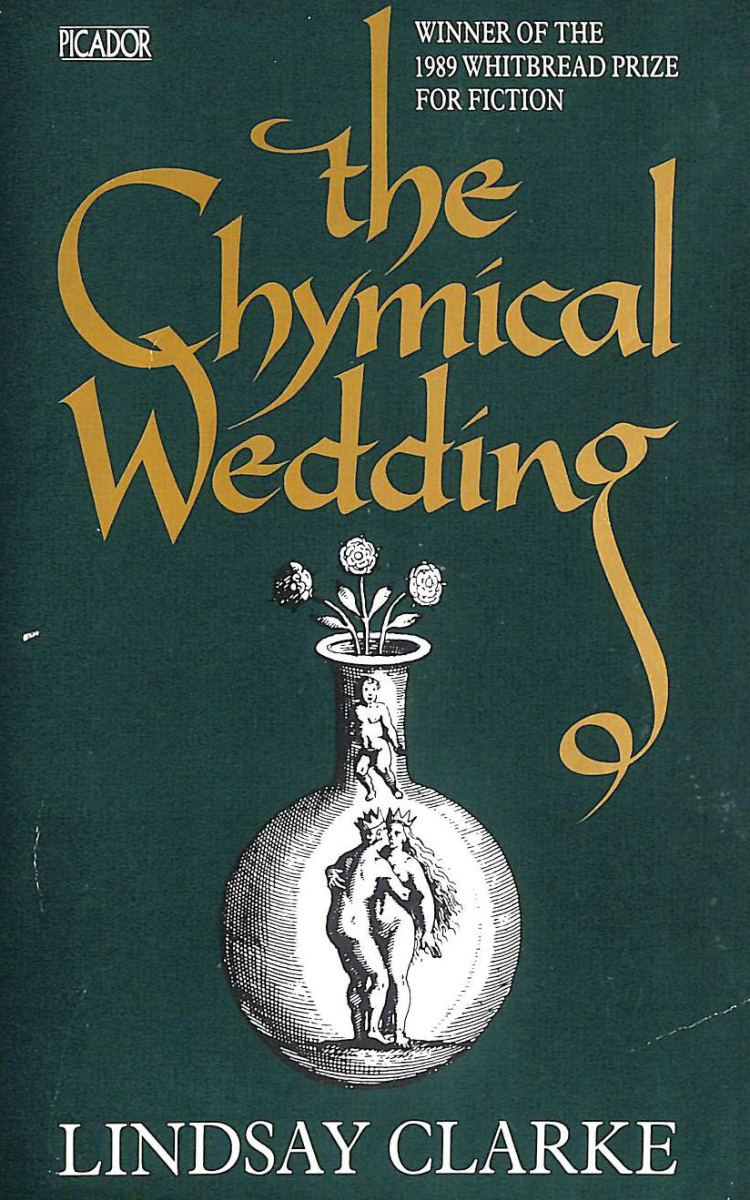
The very craziness of the Hermetic Quest is turned into a sane metaphor, representing a glimpse of how symbolic the world already is, how much it is made in our image, littered with fragments of our dreams. (London Review of Books)
A Place of Greater Safety by Hilary Mantel
You might be able to tell by the state of the spine, this book has graced my bedside reading pile more than once (despite it being nearly 900 pages long) - ever since 'A'-level history classes, I have had a bit of a "thing" for the French Revolution. Or perhaps it was Sunday afternoon childhood viewings of "Carry On...Don't Lose Your Head"... Whichever, this vortex of a swirling, populous epic tells the tale one of history’s greatest and bloodiest convulsions through the lens of three of it's central characters - Desmoulins, Danton & Robespierre - & is bursting with detail in a manner typical of Dame Hilary. Personally, I found the much-lauded "Wolf Hall" & its sequels rather cold (probably a reflection of Thomas Moore himself) but this...this made me care so much about the characters that I was loathe to reach the end, knowing their fate. A gem.

...her great achievement is not just in making these long-dead demagogues live & breathe, but setting them in a brilliantly realised family context, & surrounding them with vivid womenfolk who question, challenge or endure. It was the best of times; it was the worst of times. Hilary Mantel captures it all. (Time Out)
Lempriere's Dictionary by Lawrence Norfolk
Another well-thumbed volume - & this is my second copy (the first having been passed on to a friend facing a flight to New Zealand & in desperate need of diversion en route). Brimming with weird, memorable imagery, twisted & savage as one might expect of something rooted in Greek mythology & a motley cast of strange anarchic characters including scholars & drunken aristocrats, ancient pirates & thuggee assassins, a cabal meeting within caverns formed by a fossilised dinosaur, whores, Huguenots & more. References to Newton’s “Opticks,” the migratory patterns of whales, the draft of ships, the siege of La Rochelle, 18th-Century prostitution, Cardinal Richelieu, Anarcharsis of Scythia (the inventor of anchors) and Ovid, all writhing in the shadow of an unforgettable avenging angel. Can you tell how much I love it?
.jpg)
...a complete and utter escape into a carefully constructed hermetic universe based on the complex history of our own world but informed by a visionary fever on the part of the author that exceeds any of those considerable visionary fevers he portrays in his characters. 'Lempriere's Dictionary' is intricate, surreal, supernatural and scholarly. (Bookotron)
Nights at the Circus by Angela Carter
Of course any list of books by yours truly will include a title from the Divine Angela! And one which combines Victoriana with the circus, magic realism with fairy tales is always going to be a favourite (albeit sometimes challenged by The Bloody Chamber for the top spot in my Carter chart). Fevvers is a woman forging her own way through the squalor of 19th century London & thence across the globe, revelling in her freakishness (was she truly born - or rather, hatched - with those wings?) & leaving a trail of questions in her wake. The writing is crammed full of moments of passing strangeness and deep horror, dazzling metaphors, florid descriptions, lurid double entendres, constant questions and interrogations of reality, looping around the whole strange conceit of the woman who may have wings, or who may be pretending to have wings, or who may be pretending to be pretending to have wings to conceal the fact that she really does have wings…
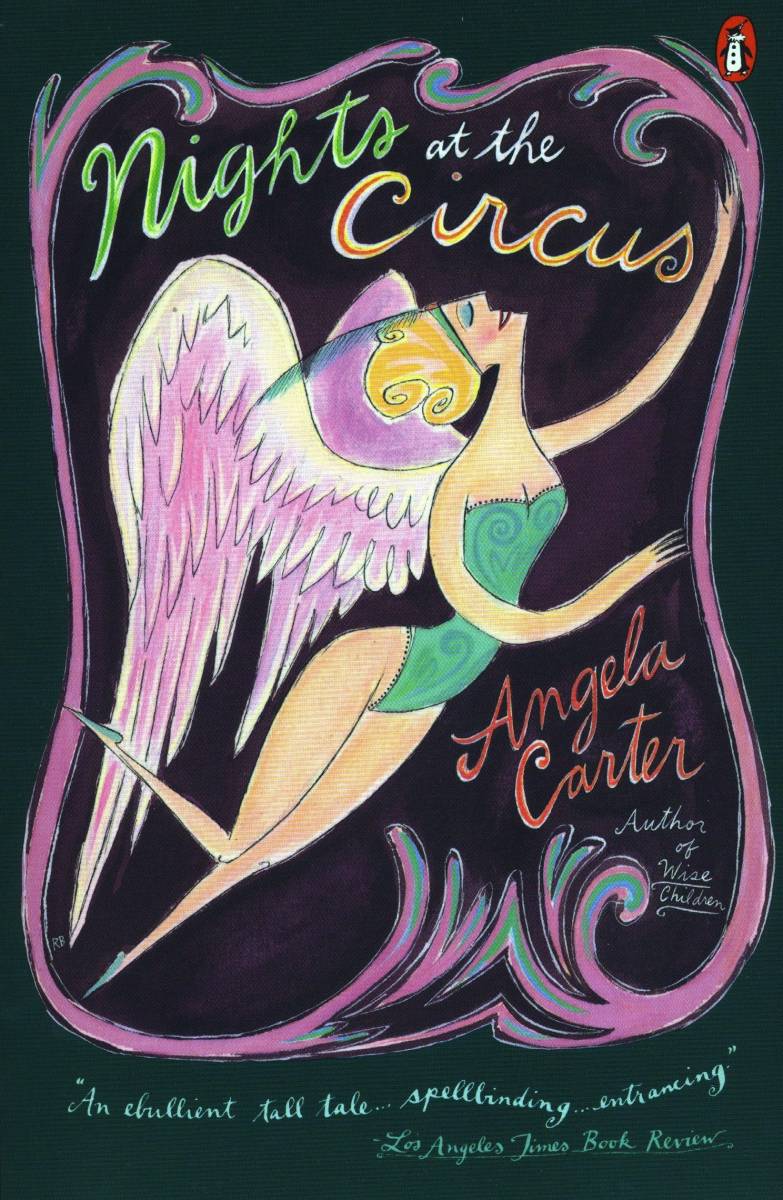
The more I read, the more I began to understand that Carter was also talking about – among other things – the abuse of power and the abuse of strength. About cruelty and confinement. About the difficulty of ever spreading your wings and showing who you really are. I realised she was saying something serious and strong and that all those flights of fancy and absurdities reveal heavy truths. It’s the iron fist in the plush velvet glove, the one that draws your eye right in so it can whack you blindingly hard. (Guardian)
The Mercies by Kiran Millwood Hargrave
At last, I hear you cry, something published within the last decade (or even this century)! Another volume centred upon strong female characters - this time based upon a real-life witch trial which took place in 17th century Norway. With all the men of the village drowned by an almighty storm at sea, the women of Vardo manage to survive for almost 2 years before a sinister representative of the patriarchal government arrives,a man who sees only a place untouched by God and flooded with a mighty and terrible evil, one he must root out at all costs. A tale of wrongly-accused "witches" showing how terrifyingly quickly prejudices can turn into murder, and how desperately we need love and courage to oppose it.
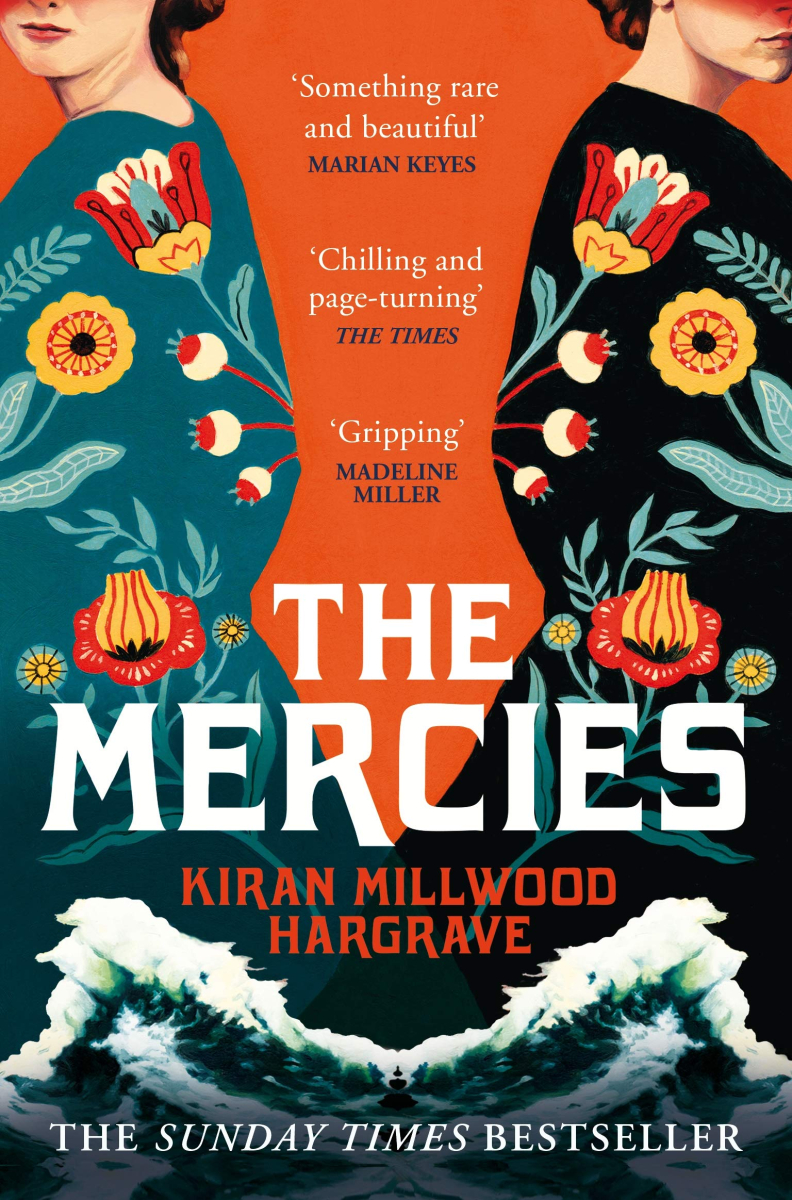
The Mercies shows us the patriarchal fear of women’s strength and reason. It is the men in power who give themselves up to hysteria and superstition, abusing their control of others’ lives and deaths in the service of self-justifying conspiracy theories: wouldn’t it be nice if the Enlightenment had put an end to such tales? (Guardian)
Something Wicked This Way Comes by Ray Bradbury
I had always thought Bradbury to be a sci-fi man (Farenheit 451 was a set text in a Sci-Fi Lit class I once took, after all) until a high-wire walking pal of mine recommended this. Mixing folklore & the supernatural with small-town Mid-West Americana it is definitely in the same universe as TV series Carnivale & American Horror Stories' Freak Show, yet still darker. Not in the sense of being more horrific than the latter, but in it's focus on the coming of storm-laden clouds blocking out the sun, the literal darkness of deep shadow & the dead hours of the night. A book for Hallowe'en, for sure, but equally good at any time of year for those of us with a gothic bent.
Cooger & Dark’s Pandemonium Shadow Show has come to town, and for Jim and Will, two boys full of the restlessness of autumn, the carnival is a treasure chest of enticements. But the cotton candy and the sweet calliope music hide a more sinister truth: Mr Dark, with his changing tattoos and sideshow patter... The freakshow is coming for Jim and Will, and the price of admission will be their souls. (Washington Post)
Joan of Arc: The Image of Female Heroism by Marina Warner
Much as I was tempted by Warner's fairytale studies (From the Beast to the Blonde in particular), the combination of her lightly-worn research skills & ability to conjure up lost worlds combined with a figure who has obsessed my since childhood proves irresistible. Who isn't intrigued by the tale of the peasant girl emerging from lowly peasant stock to lead the French armies in victory against the English invaders, only to be captured, sold & burned at the stake? Regardless on where one stands regarding her visions, the historical records which Warner brings to life tell a very human story, of a mere teenager variously cast as prophet, harlot, notional symbol, witch & holy martyr. (Some fabulous illustrations, too!)

Elegantly written, thoughtful (as one would expect from the author of Alone of All Her Sex), imaginative, sensitive. Warner ranges through iconographic, allegorical, literary, dramatic, operatic, cinematographic, linguistic, biographical, and political evidence to present a history of Joan and of her subsequent representations. (Choice)
The Cornish Trilogy by Robertson Davies
I was introduced to Davies by a theatre tutor back in my days as a student in LA, hence my choosing this arts-centred trilogy over his other, equally readable offerings. The title has nothing to do with the English county - no Poldark-esque romance here - rather it follows the life & legacy of one Francis Cornish, travelling from Canada to Oxford & Nazi Germany as it does so. Beginning with the erudite scholars & energetic spirits of a college handily known as "Spook", all 3 novels examine the echoes of medieval life in modern times & are brimful of eccentric characters - defrocked, mischief-making monks, half-mad professors, daemon-ridden painters, gypsy intellectuals & musical geniuses - entangled in a story that involves theft, perjury, scholarship, murder, love, and the squandering of plenty of cash.
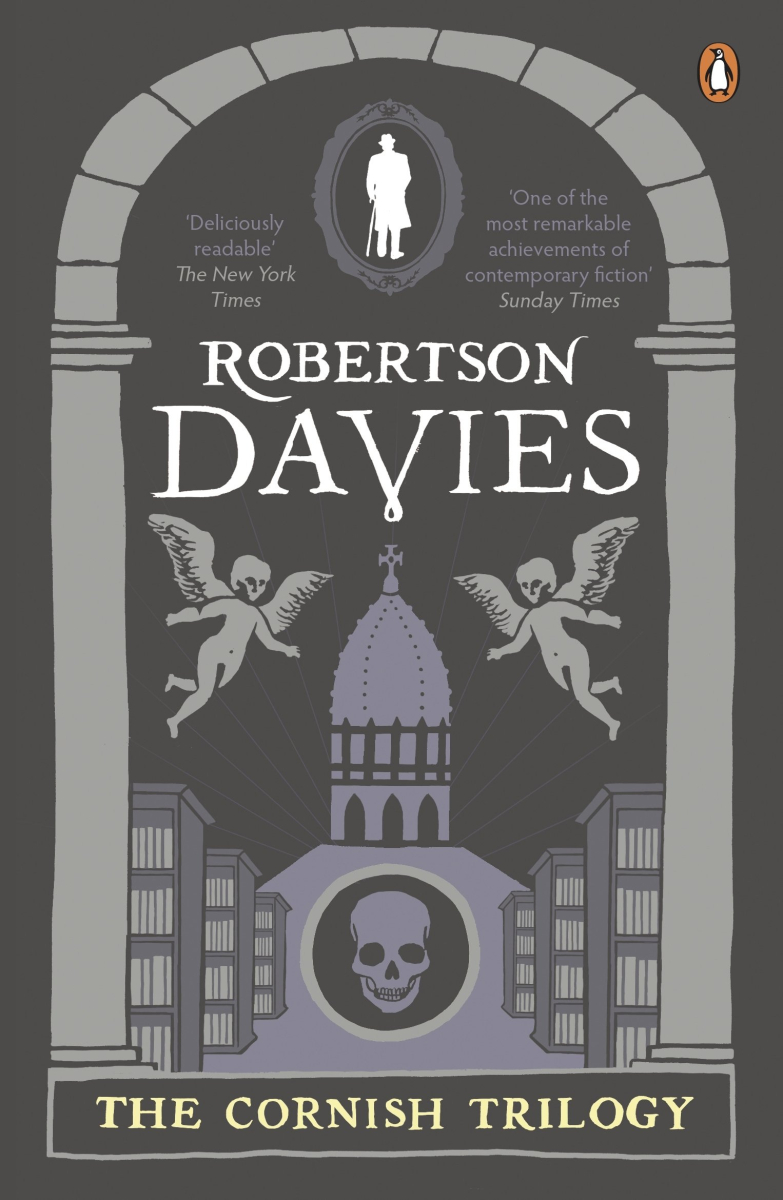
Robertson Davies is a novelist whose books are thick & rich with humour, character & incident. They are plotted with skill & much flamboyance. He's the kind of writer who makes you want to nag your friends until they read him so that they share the pleasure. (Observer)
Storyland - A New Mythology of Britain by Amy Jeffs
Interweaving literature, art and history, Jeffs reimagines medieval literature through the elemental lens of folklore, peopling the land with fire-embodying deities, forgotten peace-weavers and shape-shifting mortals, while the landscape itself keeps a plethora secrets close to its wild heart. Illustrated with glorious linocuts also created by the author, who does just happen to be a Somerset-dweller, although it is the East Coast tale of Havelok the Dane (& more specifically Briton princess Argentille) that haunts me still. At some point in the not-too-distant future I need to rework that one into a shadow puppet piece. If you read it, you will understand...
.jpg)
Jeffs writes beautifully, erring just on the right side of florid...The stories come with explanations of sources & legacies, & she has a lovely knack of rooting each one in the landscape that birthed it. This gorgeous book should live on the bookshelves in every house (Times)
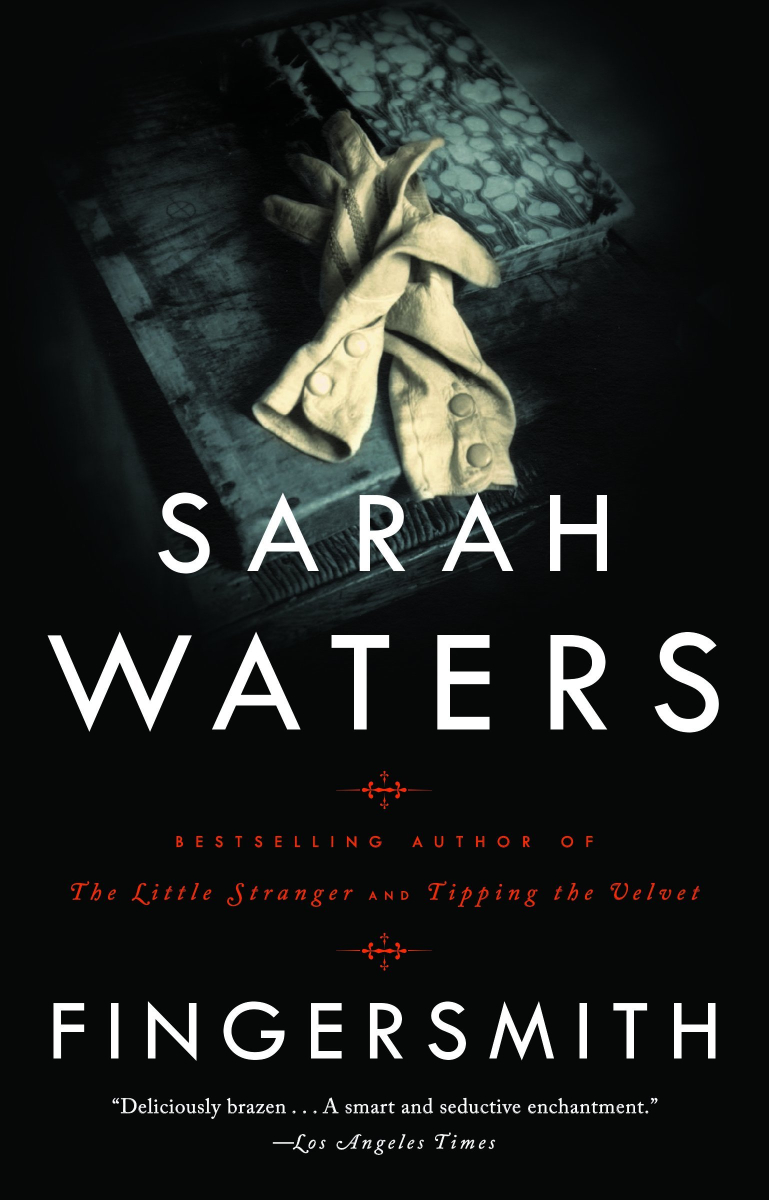
One of the best twists of any book, one that lifts the novel from a brilliant piece of modern Victoriana to something altogether more original and daring... Fingersmith, like so many great books, calls into question our desire to fit novels into restrictive boxes... If you like a great story, brilliantly told, you'll love this book (Times)
The Gormenghast Trilogy by Mervyn Peake
First a confession - I have never seen the appeal of Tolkien, with his high fantasy universe of elves & dragons. The Gormenghast trilogy, written at much the same time, instead feature a host of grotesque characters who are nonetheless decidedly human - pedantic one-legged master-of-ceremonies Barquentine, slug-like sadistic chef Swelter, lovelorn & desperate Irma Prunesquallor, self-absorbed teenager Fuschia Groan, Lord Sepulchrave & his obsession with death-owls.... So, so many unforgettable folk, a menagerie of sinister eccentrics living in a crumbling castle the size of a city, bounded by ritual, Mystery & conspiracy. Just do not ever watch the BBC adaptation, for heaven's sake!
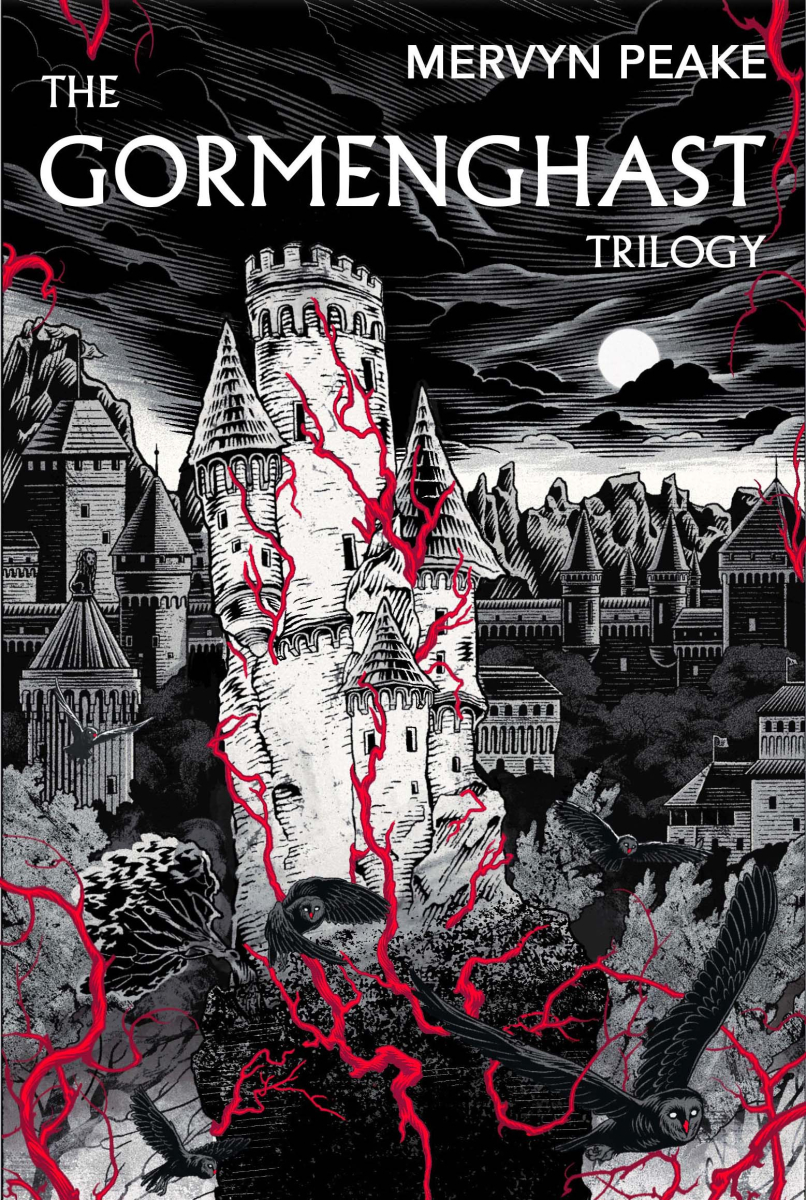
The Gormenghast trilogy is a mesmerising dynastic saga, often surreal and darkly comic, in which the eccentric House of Groan (is) threatened not only by the ill-omened birth of Titus but also the rapid ascent of a Machiavellian kitchen boy named Steerpike, a character long recognised as one of the most compelling and complex villains in English literature. The trilogy ...echo the grotesquery of Dickens, the cruel fabulism of Lewis Carroll, and the wonder and scope of Tolkien, yet Gormenghast continues to defy categorisation. A grand and gothic dream come true (Michael Moorcock)
The Witch: A History of Fear by Ronald Hutton
Back to non-fiction for my final choice, one of several volumes by the excellent Mr Hutton which grace my bookshelves (Queens of the Wild is another favourite). This is a study of the witch as an ancient & global phenomenon, rather than focussing solely upon the early modern period so beloved of Salem-et-al students, ranging from the ceremonial magic of ancient Egypt through Siberian shamanism to contemporary sub-Saharan Africa. Ultimately he returns to beliefs & practices in Britain, though, where faeries & familiars reign over such stalwart figures as Alice Kyteler & Isobel Gowdie. Decidedly academic in tone, but well worth reading if you want to get to grips with a subject increasingly relevant to today's women.

A belief in witchcraft, and all the horrors that can come in its wake, is demonstrably not a phenomenon that can be tucked up safely in a storybook past. Rather, on the evidence of Hutton’s analysis, it is a set of free-floating anxieties that can be conjured at those moments when the world seems out of joint and there is not quite enough of anything to go round. (Guardian)
That turned out to be an interesting exercise - I think I see a couple of themes recurring here. Historical, creepy, gothic & tending towards purple prose; I suppose neither I nor anyone else should be utterly surprised....

